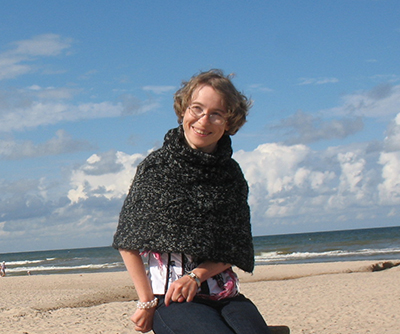Svetlana

Research
My lifelong journey in STEM got off to a challenging start. I was born with a severe form of cerebral palsy that affects most of my body. Throughout my life, I have had to overcome many obstacles, physical as well as social.
In 2002, I came to the US from Latvia, a small country in Europe where doctors gave me a prognosis that I would never walk. Some of my middle and high school teachers refused to teach me, reasoning that there would be no way for me to utilize anything I learned. At the time there were few, if any, accessible buildings and social stigma towards those with disabilities was high. However, time changes and today I can walk—though I do use a wheelchair at times. I’m pursuing a Ph.D., and I excel in my academic pursuits.
I have always had a passion for knowledge. I eventually enrolled at Washington State University (WSU) to pursue a computer science degree because it has such a large variety of applications. During my junior year I participated in research for the first time through a Research Experience for Undergraduates (REU) program. I continued to build my research skills during the next couple of years as I participated in the Undergraduate Biology and Mathematics (UBM) program. My REU work resulted in a refereed conference paper, and my UBM work was showcased at the annual conference at the National Institute for Mathematical and Biological Synthesis. I also regularly participated in poster presentations and symposia at WSU and was the lead author on two refereed journal publications and a coauthor on a third paper.
I graduated with a bachelor’s degree and stayed at WSU to pursue a Ph.D. in computer science. My Ph.D. research is centered on machine learning methods in high dimensional spaces. I apply it to bioinformatics, neuroscience, imaging, speech recognition and many other fields.
I’ve put a lot of time and energy into my studies and that has really paid me back. My achievements have been recognized at the national level several times. I was awarded the prestigious Barry M. Goldwater Scholar Award, I was chosen as a finalist Computing Research Association’s Outstanding Undergraduate Research Award Competition, I received a Graduate Research Fellowship from the National Science Foundation, and I was awarded a grant to go to Norway to conduct a research in one of the most prestigious centers for neuroscience.
My goal is to become a scientist and benefit society through my research, teaching, and scientific work.